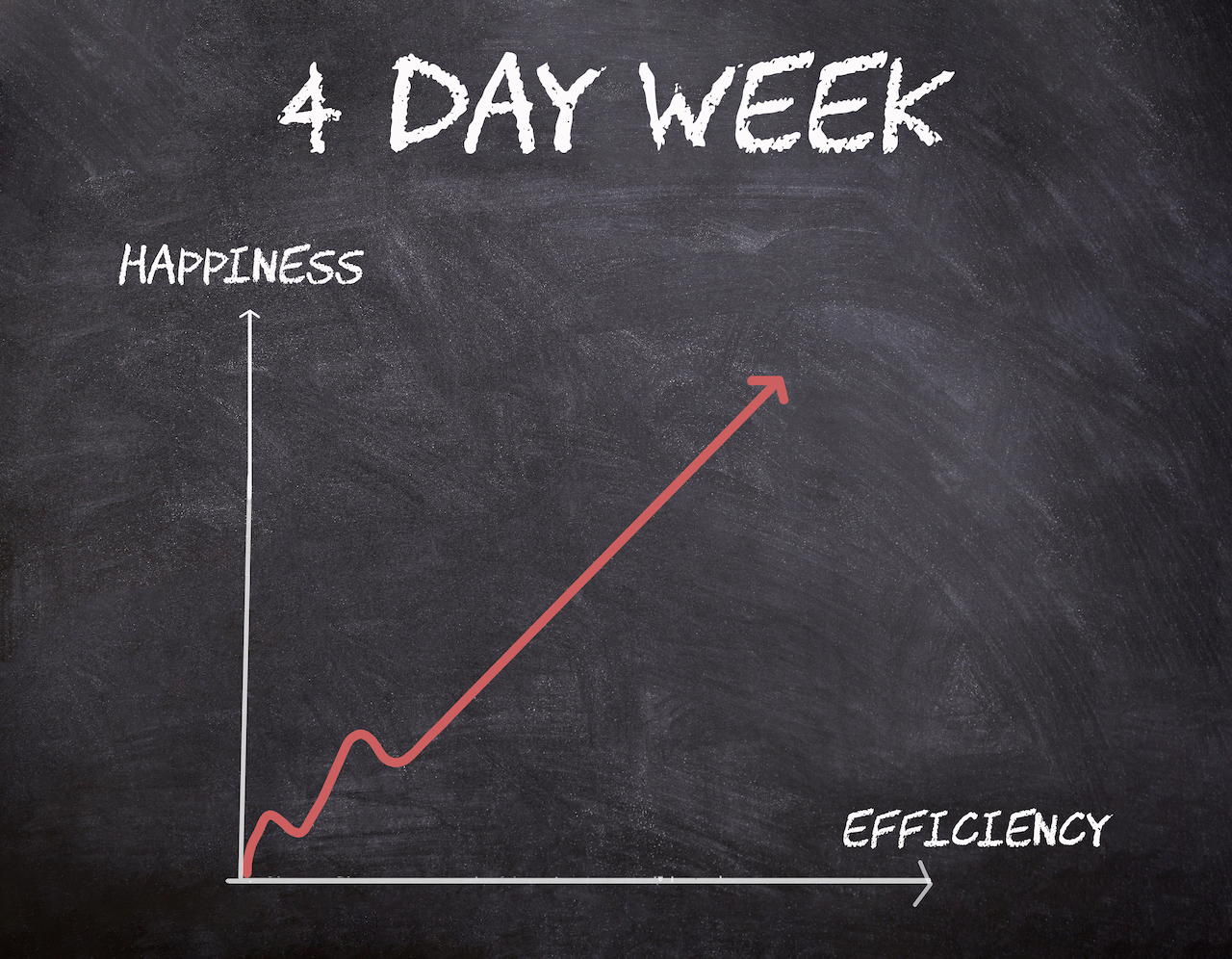4 Day Work Week Is Here To Stay
May 30, 2022

Fast Company recently conducted a poll that confirms the 4 day work week is here to stay.
Fast Company followers on LinkedIn said that they would shift their mind about staying with their current employer if they were given the choice of a four day work week.
The four day work-week dialogue has been happening for over two decades.. Pre-pandemic most organizations were resistant to changing the work week structure.
Many traditional leaders have wanted to stick with a classic five day work week. Now in the post- pandemic era the four day work week dialogue is alive and well and this time it is gaining traction.
The workplace culture has been one of ‘work hard’ and the result has been burned out and stressed out workers.
One of the outcomes of the pandemic is that many people realized how hard and fast they were working.
People also realized the negative impact that working hard and going fast at work was taking a toll on their health and on their personal lives.
The Great Resignation that began in 2020 is a result of many workers being fed up with the pressure of working long hours and long work weeks and seeking to create true life/work balance.
Today, leaders are seeking ways to engage their current workers and to have them stay a little longer in the company.
While the four day work week won’t work for every company – it can work for most.
A decade ago when I worked with a client in the commercial real estate industry and helped them to set up a four day work week plan.
The biggest resistance to the four day work week initiative was the impact on scheduling – however once they worked through that they never looked back.
They immediately saw a rise in employee engagement and productivity increased AND was sustained over long periods of time.
That commercial real estate company today has grown and is number one in its industry in the ability to attract and retain top talent.
They had the foresight to see that if they could provide work life balance solutions through the four day work week they would have competitive advantage in the industry in the war for talent.
We are firmly in a ‘workers market’, this means workers are no longer seeking work for the sake of work.
Workers are seeking work that provides them with a sense of purpose, that is meaningful AND allows them to have ample time to have a life.
Today with most organizations migrating to a permanent hybrid work policy the four day work week just makes sense.
Hybrid structure lends itself to people being able to schedule their work in a four day work week cycle.
The health, wellness and worker benefits of a four day work week and a three day weekend includes:
- More time for taking care of household errands
- More actual downtime due to extra day
- Increased time for self care
- Increased time with children
- Flexibility for working parents to have Mondays or Fridays as their 3rd day off
- Flexibility for all workers to have ‘long weekend’ getaways
- Increased productivity during the four days of work
- Increased loyalty to the company
- Reduction in burn out and disability leave
- Increased commitment
- Increased overall well being
Belgium recently approved a four-day work week and gives workers permission to not respond to their bosses on non work days.
Some UK companies are moving employee to a four-day working week in a new attempt to boost productivity in the workplace.
The idea is the brainchild of 4 Day Week Global, with support from researchers from Cambridge University, Oxford University and Boston College, as well as research organization Autonomy.
Panasonic, a major Japanese multinational conglomerate company, is offering employees the option of taking a four-day workweek, “freeing them up to take side jobs, volunteer or just relax”—and to also promote retraining, attracting talent and increasing worker productivity and happiness.
With traditional companies looking at ways to increase employee loyalty the four day work week is a future that is here now.
Moving to a four day work-week is a major change and it requires a future of work mindset that aligns with what workers want with how work is structured.
To get there leaders need to ‘lead the change’ to create the structures that will keep workers engaged and happy at work by honoring workers needs to have a ‘life first’.